The humanitarian support provided by Romania to the Republic of Moldova and Ukraine, in accordance with the 'Team Europe' concept launched by the EU, responds to the need for bilateral and multilateral solidarity, is disinterested, directed to the citizens of these states and these actions have no political connotation whatsoever, Romanian Minister of Foreign Affairs Bogdan Aurescu told AGERPRES in an interview.
The Romanian top diplomat also refers to the economic program developed by Hungary in Romania, which requires the sides to forge a draft agreement.
In the interview, Aurescu also talks about the new National Defense Strategy and the relationship with the Russian Federation.
"The draft does not come with substantial novelties, but resumes Romania's legitimate concerns, which it has constantly, transparently and predictably signaled in recent years. These concerns refer to those of Russia's actions, particularly in the Black Sea Basin, which have negative consequences on European security in general, and on regional security and stability in particular. All the Romanian programmatic documents in recent years have constantly pointed out concerns about the deteriorating situation in the Black Sea region. There is no surprise from this point of view," Aurescu said.
Addressing the subject of reform in the Foreign Ministry, Bogdan Aurescu says that reestablishing the institution on the principles of competence and professionalism and the re-professionalization and motivation of the diplomatic corps is a main objective for him.
AGERPRES: At the end of May you had a meeting in Bucharest with your Hungarian counterpart, Peter Szijjarto. On that occasion you also talked about the financial support Hungary provides to the Hungarian communities in Romania. Recently, you said that you requested the submission of a draft agreement in this regard. However, after your meeting with Minister Szijjarto, in remarks on the anniversary of the Treaty of Trianon, Hungarian President Janos Ader mentioned the "spiritual borders of the Hungarian nation", the context wherein this financial support would also operate. How are the negotiations for the potential Romanian - Hungarian agreement going on in this context?
Bogdan Aurescu: The meeting in Bucharest with my Hungarian counterpart, on May 26, 2020, was a new opportunity to convey the firm and clear desire of the Romanian side for the return to a natural relationship, of real partnership with Hungary, as well as the expectation that officials in Budapest abandon the provocative logic in relation to Romania. Just as I have done in the past, I reiterated Romania's interest in strengthening the bilateral relationship through a pragmatic, constructive, European approach and Romania's openness to identifying mutually beneficial projects that contribute to the prosperity of both states and to the well-being of their citizens.
Obviously the issues discussed included the economic program carried out in Romania and I strongly emphasized the need for the conclusion of a bilateral treaty on its implementation. This treaty should contain as key principles: the involvement of the Romanian authorities, the transparent and non-discriminatory character, the implementation in accordance with the Romanian law and with the EU law on competition and state aid.
I asked the Hungarian Foreign Minister that they put forward a draft agreement that respects these elements and allows the launch of negotiations. I hope the draft is submitted as soon as possible, as agreed with my Hungarian counterpart. In the perspective of negotiations on the agreement, the Romanian side must prepare a negotiation mandate which needs to be formally approved in accordance with Law No. 590/2003 on treaties. Obviously, the Foreign Ministry shares with other competent authorities the responsibility for establishing the main elements of negotiation, including the aspects related to the enforcement on Romania's territory. I assure you that this element will continue to be an important component of the bilateral dialogue in the coming period. I hope that this discussion will be followed by concrete steps that will confirm through facts the Hungarian side's commitment to identifying a transparent, non-discriminatory solution, in accordance with the Romanian national legislation and the relevant EU provisions.
AGERPRES: The Romanian government has recently approved over 8,500,000 lei worth of humanitarian support for Ukraine. Romania has previously provided such support to another neighboring country, the Republic of Moldova. In the light of this previous experience, how do you anticipate that the Russian Federation will see Romania's support for Ukraine?
Bogdan Aurescu: In the current epidemiological context, Romania's foreign policy promotes international solidarity and continues to actively support the efforts of the international community to combat the COVID-19 pandemic and its effects. In addition to the medical missions organized by Romania in Italy, the Republic of Moldova and the USA and to hosting on its territory the European Union's strategic reserve of medical equipment, Romania has concretely expressed its solidarity with the Eastern neighborhood states by providing humanitarian aid to the Republic of Moldova and, in the following period, to Ukraine. As you know, Romania has a special relationship with the Republic of Moldova, based on shared history, language and culture, and the citizens of the Republic of Moldova will be able to further rely on Romania's substantive and totally disinterested support. Romania's continued commitment has been recently reaffirmed through concrete and significant actions in the context of the COVID-19 pandemic, to the direct and immediate benefit of the citizens of the Republic of Moldova.
Thus, on April 30, Romania sent a team of 52, including 41 doctors and nurses, to support for 15 days the anti-pandemic efforts of medical staff in the Republic of Moldova, as well as humanitarian aid worth approximately 3.5 million euros, consisting of medical equipment, medicines and disinfectants. Also, the Ministry of Foreign Affairs has worked continuously, together with other competent authorities, such as the Ministry of Internal Affairs and the Ministry of Transport, Infrastructure and Communications, to facilitate the repatriation of many Moldovan citizens, as well as of a Republic of Moldova serviceman from the EU Training Mission in Mali, and has taken measures to ensure the seamless freight transport to and from the Republic of Moldova.
I was also telling you also about the solidarity shown towards Ukraine - recently, the Romanian government has also decided to grant Ukraine humanitarian aid consisting of disinfectants, medical equipment and sanitary materials, worth about 1.75 million euros, in support of the neighboring country's efforts to combat the COVID-19 pandemic. Ukraine is significantly affected by the evolution of the pandemic, including in the regions that are home to important Romanian ethnic communities, and this aid is an expression of Romania's solidarity, through which we support efforts to counteract the health and economic impact of the COVID-19 pandemic, amplified by the ongoing conflict in the east of the country.
This aid comes on top of the previous support measures for Ukraine, such as facilitating the transit of over 800 Ukrainian citizens on the Romanian territory or the 10,000 euro donation made by the Romanian state through RoAid for the purchase of equipment and medical and protection supplies for the Chernivtsi Clinical Oncology Regional Hospital. At the same time, in terms of international support, Romania has backed the adoption at EU level of financial assistance packages for the benefit of the Eastern Partnership states, including for the direct benefit of the citizens of the Republic of Moldova and Ukraine in the context of the pandemic.
Therefore, the support provided by Romania to the Republic of Moldova and Ukraine, in accordance with the 'Team Europe' concept developed by the EU, responds to the need for solidarity on bilateral and multilateral level, is disinterested and directed to the citizens of these states, and these solidarity actions are free of all political connotation.
AGERPRES: Beginning June 18, a new framework for the Eastern Partnership is under discussion. In the context of talks on this new framework, on the European Commission's website it is stated that "There needs to be a renewed commitment to the fundamentals of the partnership, a better measurement of the real results and impacts of reforms and their perceptions by citizens. In this context, when deciding on assistance, the EU will consider progress in the area of justice reforms. Stagnation or regression in the implementation of reforms will result in a reduction of EU funding, with the exception of civil society." Romania has already expressed a firm stance on financial assistance to the Republic of Moldova, saying it will not provide assistance as long as reforms do not continue. What does Romania raise in the discussion regarding the Eastern Partnership's new framework and new targets?
Bogdan Aurescu: In the first place, it is important to say that a first series of consultations on the future of the Eastern Partnership was launched during Romania's term at the Presidency of the Council of the European Union, in the first semester of 2019, given that the current agenda of concrete EaP priorities, the '20 Deliverables for 2020', expires at the end of this year. Following the reflection process, a broad consensus emerged on the need to strengthen this initiative in order to continue to deliver the concrete results required by the citizens.
The Joint Communication of the European Commission and the European External Action Service of 18 March 2020 and the Council Conclusions on the post-2020 Eastern Partnership of May 11 proposed a broad and strategic commitment of the EU to the Eastern partners, serving as base for the June 18, 2020 talks between the EU and Eastern Partnership heads of state on the future of this initiative.
Romania has been and remains a constant supporter of the process of democratic transformation in the Eastern Partnership states, based on European values, in accordance with the individual commitments of these states. I strongly believe that the comprehensive reforms agreed upon under the bilateral agreements with the EU must continue and, above all, evolve through the new agenda of priority objectives, which will be adopted at the Eastern Partnership Summit in the first part of next year.
Romania's perspective has not changed. We continue to most firmly support the advancement of the European path of the Republic of Moldova, Ukraine and Georgia, as EU associated states, attention to the rule of law, justice reform and good governance, as essential components for the development of these three countries.
Romania can share with Eastern Partnership countries its experience in transposing EU policies into effective national practices, in order to facilitate this process. This has been our constant approach within the Eastern Partnership and, as is natural and normal, we have directed most of our assistance efforts to the citizens of the Republic of Moldova, out of a sincere and firm desire to contribute to our common integration in the European space. Based on the experience acquired with our accession to the European Union in 2007, as well as on the understanding of the Union's role in the development of the Romanian economy and society, it is natural for the strengthening of political, technical and financial assistance for the Republic of Moldova under the EaP aegis to be conditioned at EU level by the implementation of concrete reforms in the sense of ensuring administrative transparency, reform of the judiciary, the fight against corruption, good governance.
AGERPRES: The 2020 - 2024 National Defense Strategy presents, according to the Presidential Administration, "a new approach as a result of the global paradigm shift, determined by developments in the region, the deterioration of relations between NATO and the Russian Federation, the threat posed by terrorism, hybrid and cyber threats, but also of other types of challenges." The Russian Foreign Ministry has sent a message on this subject. What is the response of the Romanian Foreign Ministry, and to what extent will this strategy, once adopted, continue to be a sensitive point in the relationship with the Russian Federation?
Bogdan Aurescu: I would begin by saying that in the draft National Defense Strategy we are not talking about a new approach, but about a series of nuances and strategic refinements required as a result of changes at international level, but in essence the Strategy is consistent with the strategic positions so far in Romania's foreign and security policy. As a matter of fact, the Strategy mentions the elements of continuity that are imposed by maintaining the constant interests of the Romanian state.
From this perspective, including in the relationship with Russia, the draft does not come with substantial novelties, but resumes Romania's legitimate concerns, which it has constantly signalled in a transparent and predictable manner in recent years. These concerns refer to those of Russia's actions, especially in the Black Sea Basin, which have negative consequences for the European security in general, and for regional security and stability in particular. All the Romanian programmatic documents in recent years have constantly pointed out concerns about the deteriorating situation in the Black Sea region. There is no surprise from this point of view.
In this context, but also against the background of the negative developments in recent years, Romania's concerns are legitimate because, regardless of some actors' rhetoric, the effect of the actions I am referring to is indisputable and I'll mention here, for example, the illegal occupation and the militarization of Crimea, the military presence on the territories of certain states without their consent, the various large-scale military exercises.
Returning to your question, to what extent can this document represent a sensitive issue in the relationship with the Russian Federation? In this context, I have two comments to make. First: it depends on the Russian Federation whether it wants to turn the strategy into a sensitive point in the bilateral relationship. We are trying to cooperate with all those who are interested in reducing tensions in the region. The mere reiteration of known aspects does not reveal any escalation intentions, as some try to present it, but just a description of reality. We were very clear on this issue, including in response to the public statements of the Russian side.
Second: as far as we are concerned, we have a clear, transparent and predictable position that is firmly articulated around international law. Going back to these terms - predictability and transparency - because they are also emphasized in the draft strategy as fundamental elements of Romania's external conduct. By itself, a transparent and predictable behavior is a rational approach and a signal of willingness to engage in problem solving.
I would also like to add one last comment: our assessments and stances are in full agreement with those expressed at NATO level. The Alliance, in its turn, as it is known, constantly presents to the Russian side these assessments and concerns which, I emphasize, are shared by all the allies. There are formats, such as the NATO - Russia Council, where these subjects are frequently addressed. The Russian side is aware of them, and the language in which they hear them is similar to the one used in our draft strategy, which, of course, is not accidental.
Referring specifically to the statements of the spokesperson of the Russian Ministry of Foreign Affairs on June 11, as you know, I immediately summoned ambassador of the Russian Federation to Romania, Valery Kuzmin, on June 12, for a discussion at the level of Secretary of State. On this occasion, the Romanian side emphasized that the mention of the Russian Federation in Romania's National Defense Strategy should be no reason for surprise, as this is the effect of the Russian side's well-known behavior in the region in recent years, and also that Romania would have appreciated the concern of the Russian Foreign Ministry's spokesperson for regional stability in the Black Sea area to be accompanied by a correct assessment of the strictly defensive measures decided at allied level, as NATO adopted them precisely as a result of the Russian Federation's mentioned conduct.
With regard to cyber threats, I would start by saying that such threats continue to be a concern. Romania takes action within NATO, which reaffirmed its defensive mandate in July 2016 and recognized cyberspace as an operational area that requires it to defend itself just as effectively as in the air, on land and at sea. Thus, the National Defense Strategy reinforces at national level an internationally assumed goal, through the continuous assessment of the risks and of the measures to counteract the cyber attacks directed against the state.
As the Strategy draft mentions, the advancement of information technologies and, in general, emerging technologies such as 5G communications, artificial intelligence, the Internet of Things, to name just a few, requires the continuous adaptation of a state's strategy to prevent unwanted events with a potential impact on national security.
Both the MAE and other relevant national authorities have often reaffirmed Romania's commitment to continue cooperating internationally to prevent and combat destabilizing actions, by promoting an international framework of the states' responsible behavior in cyberspace, based on international law.
Finally, because we have so far referred to major security challenges, I would like to mention the attention that the Foreign Ministry pays to the US-Russian negotiations on the renewal of the START Treaty, voicing our hope that they will lead to the identification of a beneficial consensus for global security.
We believe that in order to be as comprehensive as possible, the process of renewing the Treaty should also take into account an extension of the participation framework, which we consider to be useful at this stage. Here, I am considering the possibility of China joining in, especially since it is very important that the states that develop such arsenals find a common denominator together.
AGERPRES: At the end of last year, you were talking about the reform within the Ministry of Foreign Affairs. So far, what are the conclusions and what are the changes?
Bogdan Aurescu: One key objective, as far as I am concerned, is the reform of the Ministry of Foreign Affairs, its re-establishment on the principles of competence and professionalism and the reprofessionalization and motivation of the diplomatic corps. Thus, immediately after returning to the leadership of the ministry, I initiated an open dialogue with colleagues from the institution to reform the MAE's human resources policy. The main objective of this dialogue has been and continues to be the efficiency and transparency of procedures at all levels of the diplomatic career, in this case admission, vocational training, promotion, reporting to post, re-employment at the headquarters for those returning from foreign service, based on clearer and fairer criteria.
I hope that at the end of this exercise we will have a more efficient, more flexible and at the same time more correct framework for the career of the MAE staff and for the objectives of the institution. As a matter of fact, the adoption of Government Decision [GD] no. 9/2020 for amending and supplementing some normative acts in the field of foreign affairs, ie, in essence, the GD for the reorganization of the MAE, was an essential step in the institution's reform process, which involved, among others, the establishment of new organizational structures, something that has contributed to the updating and clearer delimitation of the tasks that belong to each of these structures.
One of the important elements of this process is the organization of admission competitions, both for the diplomatic and consular corps, as well as for the category of specific MAE positions, based on a rigorous analysis of staffing needs and within budgetary constraints. These will be launched as soon as developments related to the COVID-19 pandemic allow, so that competition procedures can proceed safely.
At this moment, selection processes for secondment to a 4-year permanent mission, for all categories of employees of the institution, are underway, after some time. The rotation of staff is based on the principles of impartiality, objectivity, competence and career development, taking into account the needs of diplomatic missions and consular offices, to fill vacancies in the foreign service with qualified and motivated staff. I remind you that I expressly requested, immediately after assuming the leadership of the institution in November last year, the creation of the Working Group for the evaluation of the convenience of seconded and fixed-term assignments having been carried out or under approval. This Group conducted its activity constantly, and decided upon the termination of some secondment procedures. This assessment continues.
I assure you that the MAE institutional reform process, a complex and laborious process, will continue to proceed at a sustained pace, through the efforts of the entire MAE team. A successful diplomacy is backed by trained, competent, motivated people. Therefore, the reform of the ministry and the Diplomatic Corps remain some of my major concerns as Minister of Foreign Affairs.
AGERPRES: You were heard in Parliament on the issue of Romanian seasonal workers and their rights, especially during the SARS-CoV-2 pandemic. You then talked about the fact that diplomatic missions rarely receive requests for assistance from workers in difficult situations. If you should send a direct message to Romanian citizens who go to work abroad, related to their relationship with the MAE, what would it be?
Bogdan Aurescu: The message I would send to Romanian citizens who go to work abroad is the one that the MAE has conveyed since the beginning of the crisis and continues to pass it on on every occasion, on all communication channels at its disposal: getting thoroughly informed before traveling abroad for professional activities, including by consulting the information published on the websites of the diplomatic mission and / or consular offices of the state of destination and paying greater attention to the provisions of the employment contracts to be concluded prior to traveling abroad, especially given the specific conditions imposed by the current COVID-19 crisis.
To this end, we have constantly conveyed recommendations to Romanian citizens abroad who are facing difficult situations, including cases where their rights are not being respected, to contact the diplomatic mission or the nearest consular office for assistance and guidance. I also stressed that it is important for Romanian citizens whose rights are being violated to notify directly the in charge authorities of the states where they carry out their activity, given that the latter have control or evaluation tasks of the legality of employment contracts.
And precisely to make sure that Romanian citizens abroad have all the necessary information, especially in the context of the crisis caused by the COVID-19 pandemic, starting with January, specific travel warnings were issued. Subsequently, in February, a section entitled "COVID Updated Information" was launched on the institution's official website and includes updated information on the conditions applicable in each state.
The warnings have been constantly updated, with emphasis on the recommendations for Romanian citizens who are in other European countries as workers. Also, in April, the Guide for the Romanian Worker Abroad, prepared by the Ministry of Labor and Social Protection, was published on the MAE website and on the websites of all Romanian diplomatic missions in European countries. Complementarily, the diplomatic missions actively disseminated the messages addressed to the Romanian citizens through Facebook. At the same time, I would mention the steps taken by the MAE and the diplomatic missions and consular offices, which have taken notice ex-officio in most cases and reported to local authorities, at all levels, issues related to compliance with labor law, social protection and implementation of health measures, in the context of the epidemiological crisis.
To resume, I believe that this crisis is a lesson not only for states and authorities, but also for each of us, and we encourage that, in the future, Romanian citizens stay informed, know their rights and demand their compliance. The Ministry of Foreign Affairs and our diplomatic missions and consular offices are there precisely to ensure that when this does not happen, we notify the relevant authorities. I encourage Romanian citizens not to hesitate to ask for consular assistance.
I would also like to reiterate that the situation of Romanian citizens abroad is a constant concern for me as a minister and for my colleagues, and our efforts to provide support to all Romanian citizens abroad, including seasonal workers, will continue steadily, within the boundaries of the real possibilities of action in the field and our remit.
AGERPRES: Do you consider that EU member states are currently learning a lesson in the context of the pandemic? Or is it a time when weaknesses can be seen instead?
Bogdan Aurescu: The pandemic represented, both for the Member States and for the European Union as a whole, an important "test" in terms of the ability to react quickly and efficiently to an unprecedented situation from an epidemiological point of view, as well as with regard to the capacity to identify and draw up unique solutions to economic and social difficulties. Last but not least, this crisis has been a "test" of solidarity and the will to act together - citizens, Member States and Community institutions.
With regard to Romania, I would like to point out that despite the fact that the current crisis has been one of the most complex and severe in recent history, and even diplomatic activity has had to adapt to these unprecedented challenges, our foreign policy has remained well-founded on the same consistent pillars that underlie its architecture - the EU and NATO membership and the goal of increasing Romania's role in these organizations and increasing their profile, developing and deepening the Strategic Partnership with the US, the deep attachment to multilateralism and the observance of international law. At macro level, I would say that among the most important lessons learned from this pandemic crisis are: the need to expand the concept of national security to issues related to public health and the resilience of health systems, the need to strengthen a certain degree of autonomy in relation to the production of critical medical equipment, the importance of combating misinformation and fake news, as well as the primary role of new technologies in the current activity and the need to pay enhanced and innovative attention to connectivity issues.
As regards the reaction at European level, even if the shock of this pandemic has led, in a first stage, to the adoption by the Member States of unilateral measures to limit the spread of the virus, subsequently there have been drafted, including with the support of the European Commission, decisions which have fostered a coordinated approach to this challenge, both at Community level and in relation to third countries. Thus, the creation of transport corridors to ensure the functioning of the internal market and access to goods, the drawing up of financial decisions to limit the economic effects of the crisis, the launch of joint procurement of medicines and medical equipment, and cooperation in repatriation actions or with regard to limiting access to the EU from third countries during the pandemic, these are just some of the measures promoted in a coordinated manner and which have produced the expected result: effective joint management of the immediate effects of this pandemic.
Of course, similar to any crisis situation, the COVID-19 pandemic has generated many unexpected or unpredictable developments even for Member States with a high-performing healthcare system or for those with stable economic situations. In this context, we cannot talk about the weaknesses of states in managing this challenge, but about a series of limitations of the capacity to respond to an unprecedented situation. We must keep in mind, however, that there has never been a crisis of this magnitude in the history of the Union that affects all Member States at the same time.
On the other hand, if we look a little further back, we will see that the engine of the advancement of the European construction has been activated in many situations by the experiences of the various crises that the European Union and the Member States have gone through. Always, in difficult situations, the right source has been found in identifying new opportunities for cooperation and the strengthening of joint action and prevention and management mechanisms. In the case of the current crisis, too, it is important that the experience gained be translated into consolidation levers of the European project as a whole, and that the "lessons learned" translate into a capacity to react faster. Specifically, I am talking about measures to limit the spread of the virus, coordination mechanisms to provide mutual support at European level, increased autonomy at European level in the production of medical equipment, investments in medical research, robust health systems-infrastructure medical and fit human resources, the establishment of mechanisms and measures that allow the society to adapt to such situations from a social and economic point of view.
As you may have noticed, some of these have been put into practice during the pandemic. Already an example of Union action in the sense of lessons learned is the creation of a strategic reserve of medical equipment for the European Union - rescEU. Romania was the first Member State to host this strategic reserve, subsequently facilitating the delivery of essential equipment to the most affected areas, including the EU's neighborhood, such as Italy, Spain, Montenegro, the Republic of North Macedonia.
The current crisis has, in fact, shown the Union's power of reaction and action when acting in a coordinated way, based on dialogue and cooperation and pursuing common goals. Thus, the package of emergency economic measures adopted jointly by Member States in April to combat the crisis and the Commission's decisions to temporarily adjust state aid rules are unprecedented. The crisis has prompted the identification of innovative and ambitious solutions, unimaginable in the previous period. The Union's economic and social response has also been achieved through the rapid adaptation and flexibility of instruments, such as the rules for the use of European funds or the creation of new ones at European level, such as the new instrument for temporary Support to mitigate Unemployment Risks in an Emergency. The measures were unreservedly supported by all Member States as well as by the European Parliament.
Other concrete actions will certainly follow in order to ensure effective coordination at European level in the future for the management of health crises and economic consequences. In this context, mention should be made of the European Economic Recovery Plan and the future 2021-2027 European budget, which are currently being negotiated and which have the role of contributing to the recovery of the European economies.
The crisis has also highlighted the need for strong and adaptable health systems, with the necessary mechanisms and reserves to be able to respond to new pandemics or similar situations. The actions of the EU and of the Member States, including Romania, in the coming period will take into account the strategic nature of the field of health and the vital importance for the proper functioning of European societies. Thus, we expect the health sector to be strengthened at European level through the extension of coordination between Member States and the allocation of more substantial funding for health actions. In fact, the Commission's proposals for the European Health Program for 2021-2027 - EU4HEALTH go in this direction. In addition, the mobilization at European level to identify a vaccine against COVID -19, both through the actions of the Member States and through coordination by the European Commission, is unprecedented.
In conclusion, I strongly believe that the main lesson to be learned is that Europe must remain united, strong and in solidarity, and its decision-making mechanisms must be adapted and strengthened. In these circumstances, including the debate on the future of Europe must be seen as an opportunity to analyze the conclusions drawn from the management of this crisis and the specific needs of each Member State, depending on the impact of the COVID-19 crisis. The European project can only benefit from such a reflection.
AGERPRES: On June 19, at the end of the European Council videoconference meeting, President Klaus Iohannis said: "I think it is obvious that Romania needs European money to catch up with the average of the European Union countries." The news conference with the president of the European Commission and the president of the European Council focused on the allocation of recovery funds, namely how to deal with the situation of countries that already needed funds before the health crisis. What are the lines Romania can use to negotiate over funding, from this point of view?
Bogdan Aurescu: As I mentioned earlier, the COVID-19 pandemic has generated and continues to generate multiple negative effects on all states. The economic and social impact is considerable and requires a coordinated response, firstly to mitigate the effects and secondly to secure a return to a sustainable growth process, as well as to the continuation of the convergence process inside the European Union. The experience of the previous economic crisis in 2008 shows us that such a process is time consuming and involves sustained joint efforts.
That was also the reason why the European Commission has put forward a comprehensive European Economic Recovery Plan that would be based on two pillars, namely: a first pillar represented by a temporary economic recovery instrument called Next Generation EU, which aims to provide immediate financial support to member states to mitigate the effects of the crisis, and a second pillar represented by a multiannual financial framework for 2021-2027, which will support recovery measures and also the implementation of the EU's medium and long-term objectives.
From Romania's perspective, it is important that the two pillars are designed in a complementary way and that, in principle, the support offered to the member states, including Romania, under the economic recovery instrument comes to supplement the allocations earmarked under the European budget.
Thus, in the case of the recovery instrument, we are talking about short-term funding sources that can be used to support the post-COVID-19 economic recovery process or to start the implementation of structural reforms that will lead to an increase in development capacity and resilience. In principle, Romania can access all funds and subsequent programs of this instrument, whether we are talking about the recovery facility, which is the most significant in terms of allocations, or about programs designed to adjust certain sectors affected in this context, such as the SME sector and the labour market.
Secondly, medium- and long-term measures will continue to be supported under the European budget, and Romania considers it necessary for ambitious allocations to be secured, ready to support in the medium term the continuation of the process of economic and social convergence at European level. In relation to these objectives, Romania, jointly with many other member states, continues to advocate for securing a central role for the cohesion policy and the common agricultural policy under the future European budget, as the two policies categorically contribute to boosting investment and the convergence process.
As President Klaus Iohannis also indicated in his statement of, Romania must continue to make sustained efforts to close the development gap separating it from other member states, "to catch up". However, the crisis makes such effort more difficult, given that, in addition to the standard funding priorities there is a need to finance new measures. Even from such perspective, Romania will advocate for consistent allocations both under the recovery instrument and under the classic European budget.
I would also like to emphasise that currently what we have on the negotiating table are the proposals of the European Commission. Based on them, a complex and particularly complicated negotiating process is under way that will have to be translated into a political agreement of the member states in a relatively short period of time.
AGERPRES: Could Romania's indicators be seen as a "minus" in the negotiations over the recovery funds?
Bogdan Aurescu: Measures to counteract or reduce the economic effects of the pandemic are, to a significant extent, steered towards the sectors and regions that have suffered the most. As mentioned above, what we have at the moment are the proposals of the European Commission. There are no aspects agreed at EU level, and the negotiations as well as the ensuing agreement will ideally include, in a package, all the essential elements for shaping an efficient and viable recovery plan.
At this time, issues related to the method of allocating available resources from the recovery tool are under discussion at member state level. The resource allocation mechanism is adjusted for the specifics of each instrument, fund or program. It should also be noted that the EU economy could shrink by more than 7% in 2020, according to European Commission estimates, and the Eurozone economy could shrink by almost 8% in 2020. As we speak, the European Commission's proposals on the recovery instrument are based on those estimates, but the situation may experience significant developments in the coming months. As the European Commission's proposals are being constructed, they take into account both the effects of the crisis on the member states' economies and indicators related to their overall well-being so as to ensure an equitable sharing of resources among the member states accounting for their real needs beyond the crisis.
The member states relate to these criteria differently, depending on their interests. Overall, however, it can be said that the allocation methods proposed by the European Commission are a good basis for discussion in the ongoing negotiations. Romania finds it important for the allocations under the recovery instrument to complement those in the EU budget and support the efforts for convergence and reforms at national levels.
INTERVIEW ForMin Aurescu: Romanian support to Ukraine completely disinterested, free of all political connotation
Articole Similare
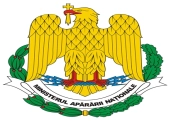
14
MApN: Fresh Russian strike on Ukrainian Danube ports; drone briefly breaches national airspace
14
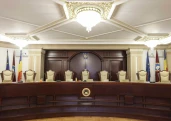
11
Constitutional Court publishes reasoning behind decision on Government reform bill on magistrates' pensions
11

13
PSD's Grindeanu wants Constanta Port to become main hub for Ukraine's future reconstruction efforts
13

11
Bucharest Stock Exchange closes Thursday's session in the red
11
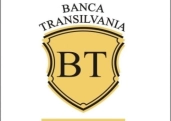
12
Mastercard, Banca Transilvania extend McLaren F1 partnership to Austrian and Hungarian races
12
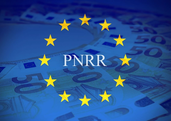
15
Bolojan says Romania must meet NRRP decarbonisation milestones without risking energy system stability
15

19
Defense Ministry executes Avioane Craiova bank guarantee for IAR-99 Standard aircraft modernization
19

8
30th French Film Festival to run in Bucharest and 15 other cities, March 19 - 29
8
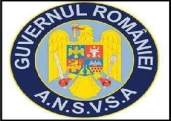
13
ANSVSA to step up inspections at stray dog shelters, calls for national mass sterilisation programme
13
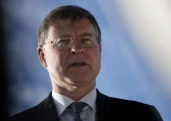
14
Commissioner Dombrovskis:Romania is on the right track, yet needs to stay the course of sound fiscal policies
14

10
Bolojan: Improving consular services remains priority for Government
10
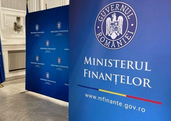
9
Finance Ministry to launch blockchain-based digital system for managing fiscal receipts
9
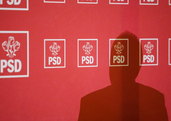
7
PSD:It is right of leadership to analyze whether and under what conditions it will continue to support coalition
7

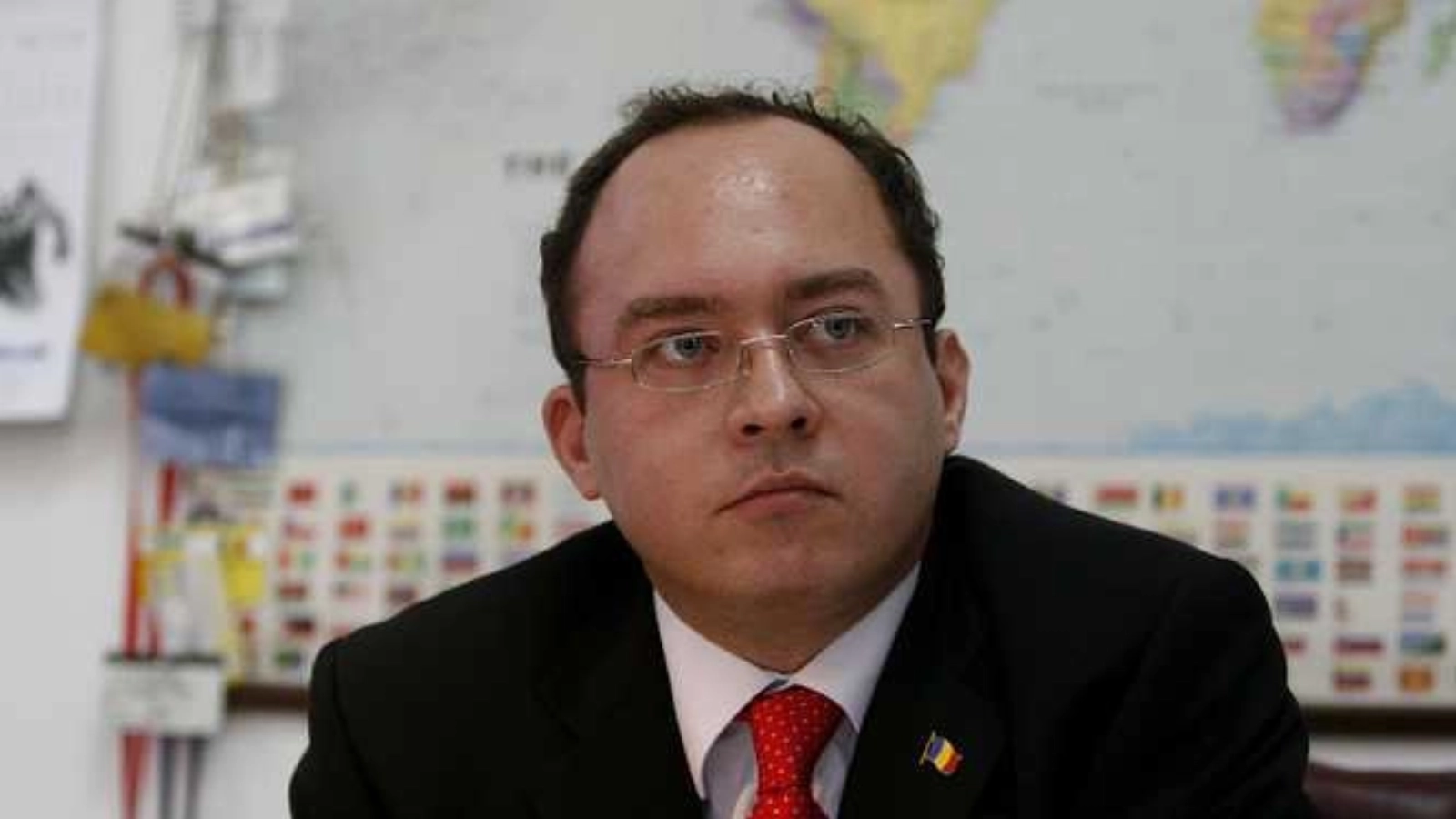

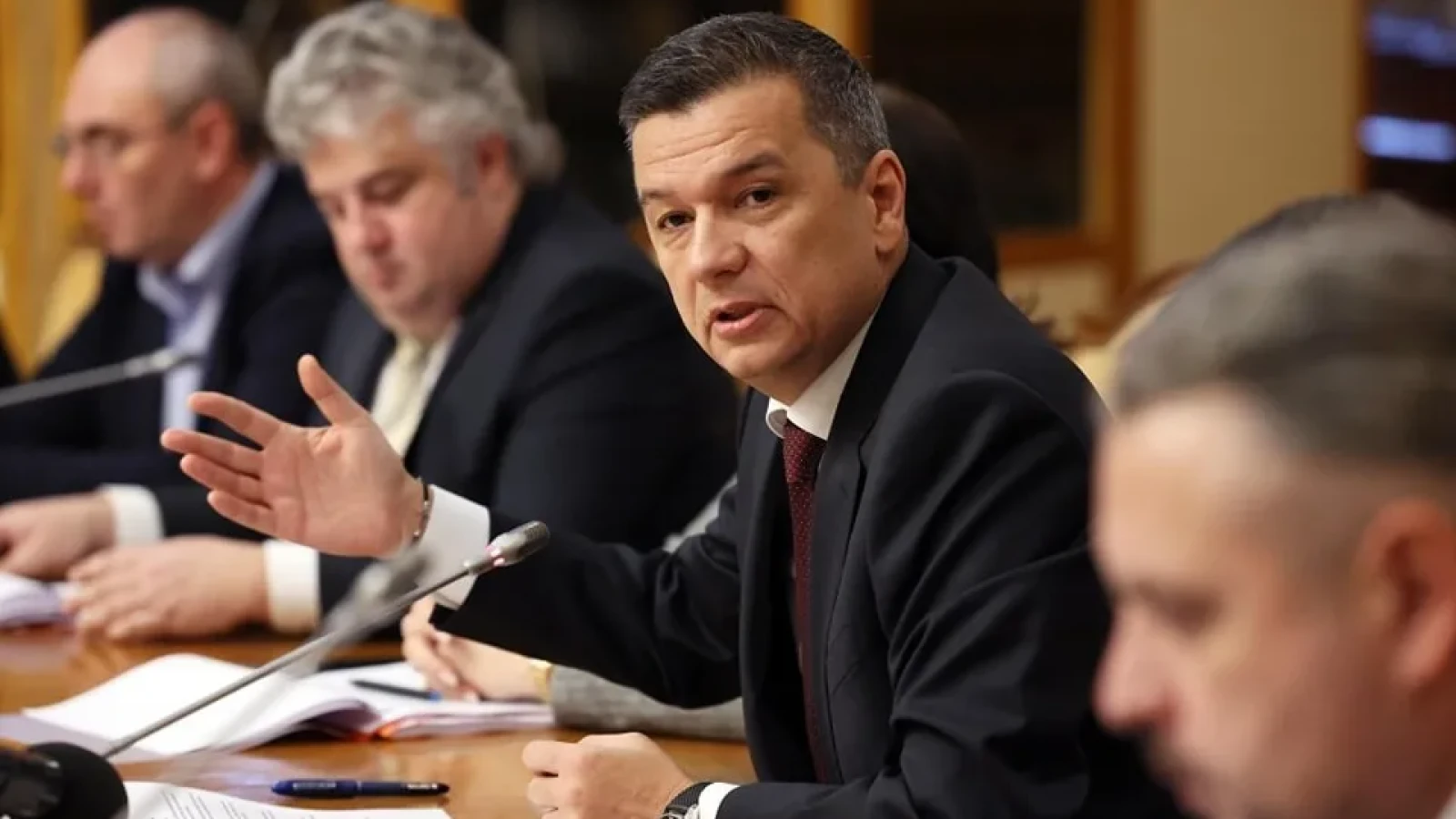















Comentează